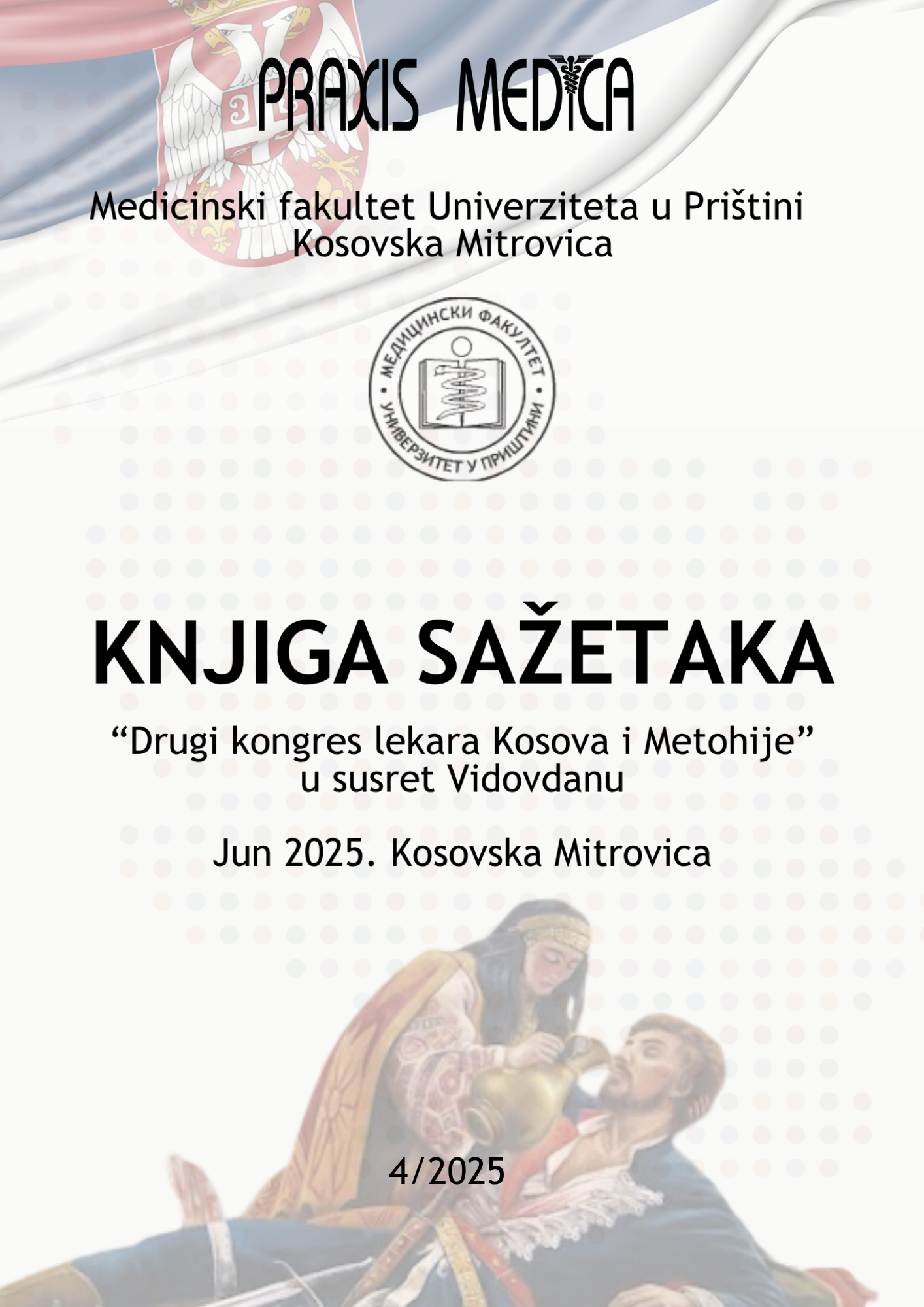
More articles from Volume 51, Issue 1, 2022
The impact of body weight on the secondary osification centers development and the term of closure of the anterior fontanelle in infants
Students' attitudes about the quality and effectiveness of online compared to traditional teaching of histology and embryology during the COVID-19 pandemic
Assessment of neutrophil-lymphocyte and platelet-lymphocyte ratio in patients with hashimoto's thyroiditis
Frequency of depression in patients affected by subclinical and clinical hypothyroidism: A cross-section study
Factors associated with involuntary hospitalization
Citations

0
Frequency of depression in patients affected by subclinical and clinical hypothyroidism: A cross-section study
University of Kragujevac , Kragujevac , Serbia
Abstract
Introduction. Hypothyroidism can be accompanied by various neuropsychiatric manifestations ranging from mild depression and anxiety to psychosis. Objective. The study aimed to determine the presence of depression in patients with hypothyroidism (clinical and subclinical). Methods. The survey was conducted over twenty-four months, from 01. 07. 2017. to 01. 07. 2019., at the Health Center Krupa na Uni. The cross-sectional study included 160 persons, two groups of 80 persons each. The first group included those with newly diagnosed hypothyroidism, while the control group consisted of people with neat, thyroid function. In addition to the general questionnaire, the study used Beck's Depression Inventory and laboratory analyzes (enzymatic assays to determine thyroid stimulating hormone and thyroxine). The chi-square test was used in the statistical analysis. Results. The first group consisted of 62 (38.7%) subjects with subclinical hypothyroidism and 18 (11.3%) with clinical hypothyroidism, 51 (63.7%) women and 29 (36.3%) men with a mean age of 52±6.9 years. The control group consisted of 42 (52.5%) women and 38 (47.5%) men, with a mean age of 51±4.3 years. Mild depression was verified in 50 (31.2%), moderately severe in 43 (26.9%), and severe depression in 3 (1.9%). The study found the existence of statistically significantly moderate-severe depression in participants with subclinical hypothyroidism (p<0.05). Conclusion. The results of our study indicate a statistically significantly presence of moderately severe depression in patients with subclinical hypothyroidism. Early detection and adequate therapeutic intervention of thyroid gland disorders in patients with depression. Our findings favor the need for early and routine screening for hypothyroidism and depression.
Keywords
References
Citation
Copyright

This work is licensed under a Creative Commons Attribution-NonCommercial-ShareAlike 4.0 International License.
Article metrics
The statements, opinions and data contained in the journal are solely those of the individual authors and contributors and not of the publisher and the editor(s). We stay neutral with regard to jurisdictional claims in published maps and institutional affiliations.






